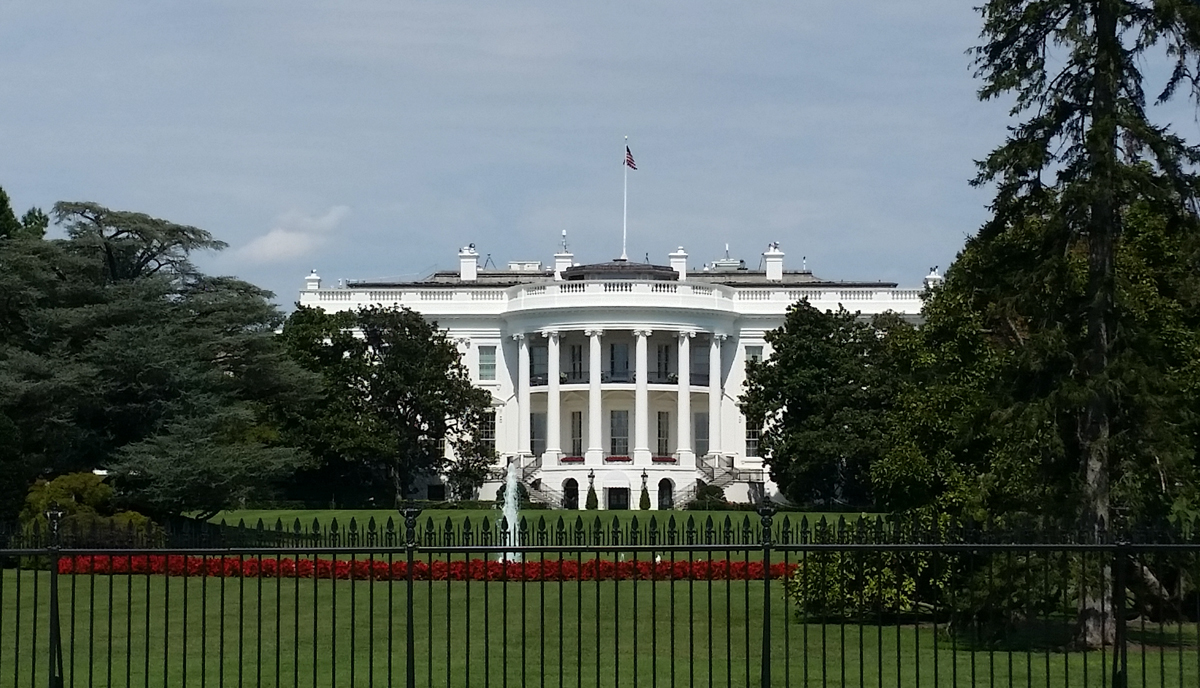It appears that Joe Biden will become the next President of the United States in January. He has already stated many of the things he plans to do during his term. Some of those things will have direct financial impact on us. Biden has stated he wants to cut costs for the low and middle income families and raise costs for everyone else. Most physician’s income falls in the taxes will get raised camp. Time will tell where the actual income cut off will be placed for the tax increases and decreases.
We must keep in mind that just because he said he is planning to do something, doesn’t mean he will. Also just because he wants to do something, doesn’t mean he can get it through congress. I hope the senate remains with a republican majority so that a compromise must be found that will benefit all Americans. Government action is best when opposing parties have to find common ground to pass legislation. If the democrats have the house, senate, and the presidency, that would not be good for America as the notion of compromise will be lost. It is not best if either side can push through all the legislature they want without opposition.
With that in mind, we must consider the following proposals as merely proposals and not the actual events that will transpire. I also could have his positions misinterpreted. But if these ideas do get passed, how might they affect us?
Minimum wage
Biden proposes to increase the federal minimum wage from $7.25 an hour to $15 an hour. Since many states have imposed a higher minimum wage than what is mandated by the federal government, raising the federal minimum wage will have a varied impact in each state. This will affect the cost of doing business if you hire minimum wage workers in your office. If you are a minimum wage worker you will either get a nice raise, or get laid off, depending on how well your employer can handle the increase. Many businesses are already strained due to the COVID shutdowns.
Student loans
One Biden proposal will cancel $10,000 of student debt per borrower. This will likely be income adjusted so those with high income, including physicians, will not likely see their student debt canceled. Just the fact that the amount is only $10,000 means he is looking to help college graduates with their student loans, not medical school graduates.
Another option is to forgive all debt for low and middle income graduates from selected schools, such as public and historically black colleges. This would also exclude most physicians based on income. A great uprising might occur with this one from those who quickly paid off their student debt and no longer have debt to forgive. Those same people who already paid their student loans as per their agreement, would be among the Americans footing the bill to pay for their classmates’ debt. I’m sure they will not be happy about it. Those who made an agreement to borrow money should be the ones responsible for paying it back. Alternatively you could work it off, like the PSLF does.
If a family earns less than $125,000 a year, he proposes that a college education be tuition free. This will have a big impact on the deficit. This lessened student loan burden will allow more kids to attend college who otherwise may have passed due to the cost. This would be a very expensive program at a time when the government just went very deep into debt battling a pandemic.
He would like to double the amount one can borrow in the Pell Grant program making more money available to students. I’m not sure how providing more opportunities to borrow money will help with the student debt problem.
The time one must work in order to get their PSLF loan forgiven will shorten to 5 years, but this will likely also be income based. I doubt they will forgive a general surgeon’s medical school loans at the end of residency.
Allowing private student loans to be forgiven in a bankruptcy is also proposed. This could have a big effect on physicians who have a huge student loan debt when they lose their jobs. I suspect the bankruptcy courts will be very busy if this goes through.
Taxes
Biden plans to roll back the 2017 Trump tax cuts. This would change the top individual tax bracket from 37% to 39.6%. Corporate taxes would go up from 21% to 28%. There is also talk of increasing capital gains and inheritance taxes.
Of course, we are all assured that this will only affect those families making more the $400,000 a year. Physician incomes straddle this figure so many would be affected.
Additionally, the low to middle income families will have the benefit of an $8,000 tax credit per kid for childcare costs, caped at $16,000, and a $3,000 tax credit for each child under age 18 in the household. This is a $1,000 per child increase over the current credit of $2,000 per child.
Increasing taxes tend to affect the stock market negatively; thus our retirement plans might take a hit requiring us to remain in the workforce longer before we reach financial independence. Bad news for the FIRE community.
Healthcare
Biden is in favor of keeping The Affordable Care Act and continuing to build on it the way it was originally set up during his time in office as the vice-president. So even if the Supreme Court tosses any part of the affordable care act out, Biden might find a way to reestablish some of the provisions as a new law.
He doesn’t currently support the single payer system that Bernie Sanders wants, but there may be a strong pull from the Democratic Party to push for this, which will likely decrease physician pay.
There may also be a move to cap a family’s healthcare expenses to 8.5% of their adjusted gross income. Most people do not have healthcare bills this high, but it would help those who have a major health issue. If the government pays the big bills, that might help physician pay.
He is considering lowering the age at which a person becomes eligible for Medicare from 65 down to 60. That would be good news for all the early retirees in the FIRE movement. Also good news for me! But where will the money come from to pay these extra five years of expenses in an already strained Social Security system?
An interesting new tax credit Biden is considering is a $5,000 tax credit for “informal” caregivers. These would be family members who provide long-term care to their elderly relatives. This tax credit would create an incentive to care for aging parents in your home. The caregiver will make some money on the tax credit while saving money by not paying a long term care facility to care for their loved one. I think this will be a big plus for society.
Retirement plans
Biden is proposing a change in the way we use the 401(k) retirement plan. Currently, all contributions are deductible. This gives a larger tax deduction to people with higher income and larger deposits. He is proposing to have a flat tax credit to all who participate in a 401(k) retirement plan, instead of a deduction based on tax brackets. This is an attempt to allow everyone to get the same deduction for contributing to a retirement plan. High income earners will take a hit on this one.
For example, currently a high earner who is in the 37% income tax bracket, gets a $37 tax break for every $100 contributed to a retirement plan. While a lower earner who is in the 15% tax bracket will only get a $15 tax break for the same $100 contribution to their retirement plan. Not fair!
Biden, to be revenue neutral for the government, proposes a 26% credit for all retirement plan contributions.
I like this idea as I have never been a fan of treating people differently for making retirement plan contributions based on their income. If we want people to invest for their future, we should make it good for everyone so everyone will participate. Currently, it is better for high earners than low earners and therefore, we don’t have very many low earners participating in the plans. I hope he will also take away the income requirements for Roth IRAs. All retirement accounts should be available to everyone regardless of their income.
First time home buyers
Saving up a down payment for one’s first house is tough for many people. Biden proposes giving first time home buyers an advance tax credit of $15,000. This would be paid by the government at the time of the house purchase. The first time house buyer will no longer need to save for the whole down payment before purchasing their home and later get the tax credit when their taxes are filed.
He is also proposing some changes in the loan approval process in an attempt to remove racial bias. Another good thing.
There you have it. Are you for or against any of these proposed changes? Did I miss one that concerns you? Did I get any of them wrong? All we can be sure of with the coming administration is what Heraclitus told us to expect:
“The only constant in life is Change.”






You are correct, Jeffrey.
Hope that there is gridlock so we can temper the ideas somewhat. But I do expect taxes to go up to pay for our massive debt. The only other way to pay off that debt is massive inflation like the 70’s, but that will be bad for everyone and the stock market. Maybe good for the bonds as interest rates would rise.
Wish the government would also cut spending, but that is wishful thinking!
Dr. Fawcett,
You raise a lot of good points.
I think I share a similar view of government. I think the best government is a very small and limited one. Since that doesn’t seem to be an option these days I would prefer gridlock. Or at least discussion and debate to dampen the expense and overconfidence on either side.
The Pell Grant is a form of need-based federal financial aid that typically does not have to be repaid. I don’t think that is an “opportunity to borrow” at least for the student. Only our government will need to borrow the money to cover the cost!
I myself am a recipient of Pell Grant funds. Since I grew up poor that government handout helped me get my education. As you can imagine I have mixed views on a lot of these programs that helped me. I appreciated the grant money and state tuition levels. But I valued college more since I also paid with loans, savings, scholarships, work-study, etc. If it were free I don’t think I would have valued it or worked as hard.
I’m hoping the cap on SALT deductions will be reversed. High earners in states with high income and property taxes (Massachusetts, California and New York)were hurt by this . Pelosi and Schumer are in favor of eliminating the cap .
Most of it sounds fairly reasonable. Rather than discharging education debt across the board I guess I’d rather they take steps to make college economics less of an outlier. (Loans dischargable by bankruptcy for one)
Isn’t Biden also proposing to tax long term capital gains as ordinary income and do away with “stepped up” basis on inherited assets?